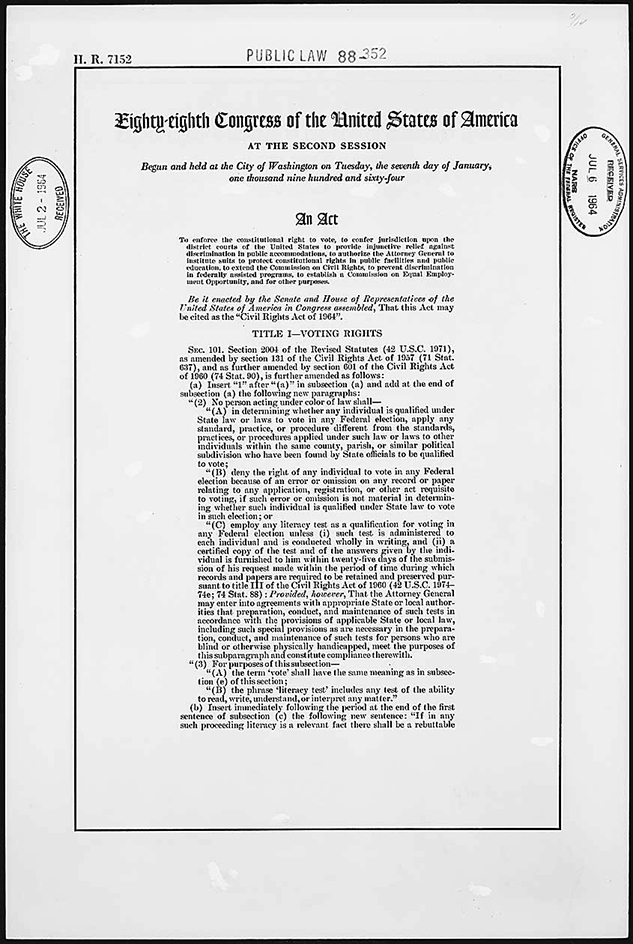Civil Rights Act of 1964 is a United States law that bans discrimination because of a person’s color, race, national origin, religion, or sex. The act primarily protects the rights of Black Americans and other minorities. It is one of the nation’s strongest civil rights laws.

The rights protected by the act include a person’s freedom to seek employment; vote; and use hotels, parks, restaurants, and other public places. An individual who is discriminated against by an employer can file a complaint with the Equal Employment Opportunity Commission (EEOC), which was established by the act. The EEOC will take the complaint to court. The U.S. Department of Justice handles other complaints of discrimination. Before the law was passed, people had to take such complaints to court themselves, but few could afford to do so.
The Civil Rights Act also forbids discrimination by any program that receives money from the federal government. The government may cut off financing for a program that does not end discriminatory policies or practices. In addition, the act authorizes the Office of Education (now the Department of Education) to direct school desegregation programs in areas specified by the government. The government can sue any school system that refuses to desegregate, or any system whose desegregation program it considers inadequate.
President John F. Kennedy proposed the act in 1963. After Kennedy’s assassination later that year, President Lyndon B. Johnson continued to support it. The House of Representatives approved the bill in February 1964. In the Senate, debate over the bill continued for 75 working days, including a 60-day filibuster (lengthy debate to block legislation) by the bill’s opponents, one of the longest filibusters in Senate history. Finally, supporters gathered the two-thirds majority of votes needed to end the filibuster. It was the first time in Senate history that a filibuster on a civil rights measure had been broken. A few days later, the Senate passed the bill. Johnson signed it into law on July 2, 1964.
